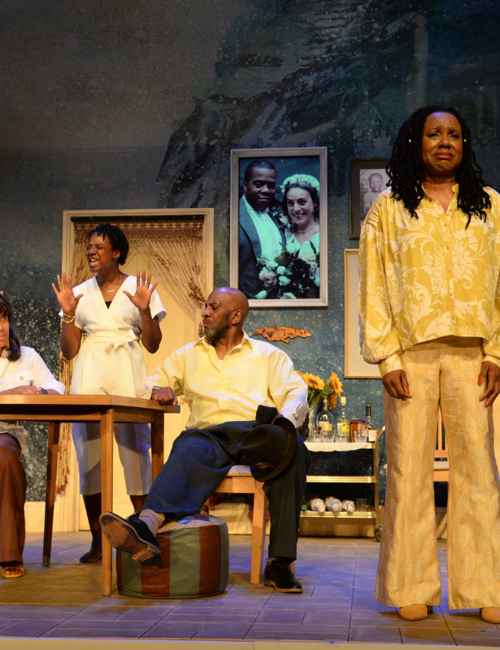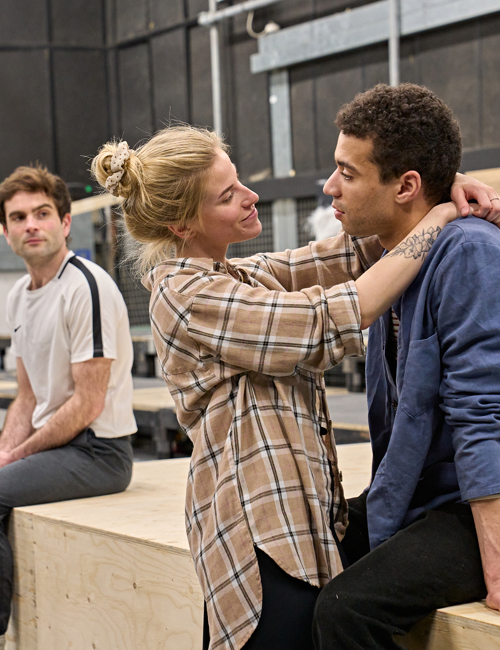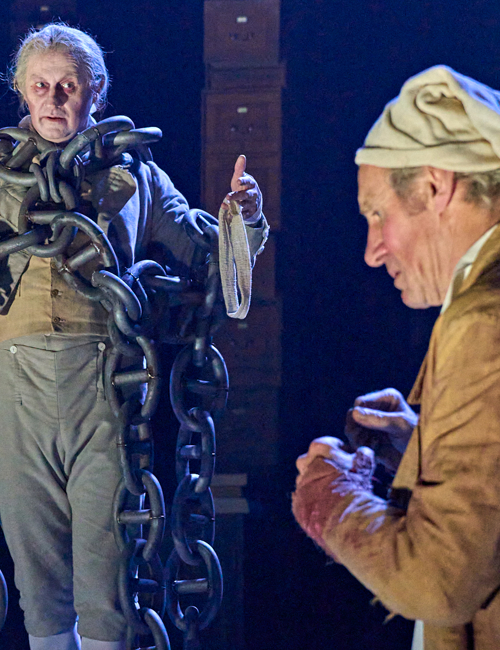What if you came up for air and the world you knew was gone?

Nottingham Playhouse was buzzing on Friday night, and you could be forgiven for thinking that everyone was there to see the James Graham’ play Punch.
But it wasn’t the only theatrical treat that night, as Surfacing, written by Tom Powell and directed by Asylum Arts' Stephen Bailey (of The Real and Imagined History of the Elephant Man), was on, for one night only, in the Playhouse's smaller Neville Studio, and easily held its own against the strong competition.
This innovative production is set in a mental health therapy centre and begins with Luc (played by Sarah Livingstone), a CBT (Cognitive Behavioural Therapy) therapist, on an ‘admin day’. In comes her client Owen, (played by Jerome Yates), who has been seven months on the waiting list and when she asks him to numerically rate his distress, he understandably walks out on a session, where he had hoped he could ‘talk about the things that he was unable to tell anyone else.’
Luc extols the use rational thought to control psychological distress yet finds that she is struggling to do this for herself. Filled with self-doubt and a recognition of the similarity in Owen’s and her own life experiences, her anxiety spirals, and this unravelling is brilliantly visualised on the stark stage using dialogue projected onto the screen behind her. Relaying on one side what she says and on the other, her thoughts, we see how they grow from self-doubt into auditory and visual hallucinations.
her anxiety spirals, and this unravelling is brilliantly visualised
The disassociation being relayed to the audience using motion sensor technology to create responsive light and sound, is added to by the physical enactment of her hallucination, by her co actor in costume. The production was signed and the dialogue on the screen was not only essential to the story but dramatically enhanced the accessibility for the production.
This play with two actors and minimal physical props, skilfully delivers a thought-provoking and action-packed story, which convincingly illustrates Luc’s mental health crisis. Using magic realism, it also manages to tell a believable stomping story with car theft, family tragedies, midnight swims, laboratory mice, a critique of mental health services, and a trip to the seaside. Luc’s attempts at ‘normality’ and seeking help in the midst of her crisis are heartbreaking and beautifully insightful.
This extraordinary production was developed in collaboration with neurodivergent communities and medical research professionals. If you have felt as if no one was listening, you will find echo’s here and for me, the story between the two characters highlighted the commonality of our vulnerabilities. It was evocative of the term created by the psychologist Carl Jung who talked of the wounded healer and the shared trauma that exists within and between therapists and clients. Never falling into sentimentality, the play mirrors the complex layers of a mental health crisis. It is a call out for human kindness and challenges current mental health treatment norms. It asks us not to look away from what may be below the surface.
Surfacing played at the Nottingham Playhouse on Friday May 10th 2024.
We have a favour to ask
LeftLion is Nottingham’s meeting point for information about what’s going on in our city, from the established organisations to the grassroots. We want to keep what we do free to all to access, but increasingly we are relying on revenue from our readers to continue. Can you spare a few quid each month to support us?




